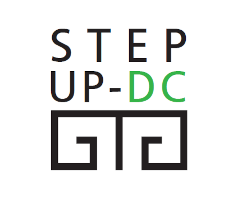Υλικό, το οποίο ο εκπαιδευόμενος πρέπει να μελετήσει κατά τη διάρκεια της ενότητας, καθώς και επιπλέον υλικό για περαιτέρω μελέτη.
Υποχρεωτική Μελέτη : 1) Huber, J. and Reynolds, C. (eds.) (2014). Developing Intercultural Competence Through Education. Strasbourg: Council of Europe. 16808ce258 (coe.int) 2) Banks, J. A. (2018). An Introduction to Multicultural Education. 6th edition. London: Pearson Education. 3) Maalouf, A. (2012). In the name of identity: Violence and the need to belong. Barbara Bray (Trans.). [Orig 1996]. New York: Penguin Books. | ||
Περαιτέρω Διερεύνηση: 1) Bajaj, M., Argenal, A. and Canlas, M. (2017). Socio-Politically Relevant Pedagogy for Immigrant and Refugee Youth. In Equity and Excellent in Education, 50(3), pp. 258-274. 2) Bourdieu, P. & J.-C. Passeron (1977). Reproduction in education, society and culture. London: Sage. Coulby, D. (2006). 3) Council of Europe (2020). “Reference Framework of Competences for Democratic Culture”. Website with links to resources. Strasbourg: Council of Europe. The Reference Framework of Competences for Democratic Culture (RFCDC) (coe.int) 4) Council of Europe and the European Wergeland Centre (2020). Signposts Teacher Training Module: Teaching about religions and non-religious world views in intercultural education. Strasbourg: Council of Europe. Signposts teacher training module, Teaching about religions and non-religious world views in intercultural education - The European Wergeland Centre (theewc.org) 5) Todd, S. (2011). Educating Beyond Cultural Diversity: Redrawing the Boundaries of a Democratic Plurality. Studies in Philosophies and Education, 30, pp. 101-111. Educating Beyond Cultural Diversity: Redrawing the Boundaries of a Democratic Plurality | SpringerLink 6) Van Driel, B., Darmody, M. and Kerzil, J. (2016). Education Policies to Foster Tolerance in Children and Young People in the EU/2016. Luxembourg: The European Commission. 7) Journal: Intercultural Education, published by Routledge. List of issues Intercultural Education (tandfonline.com) | ||
